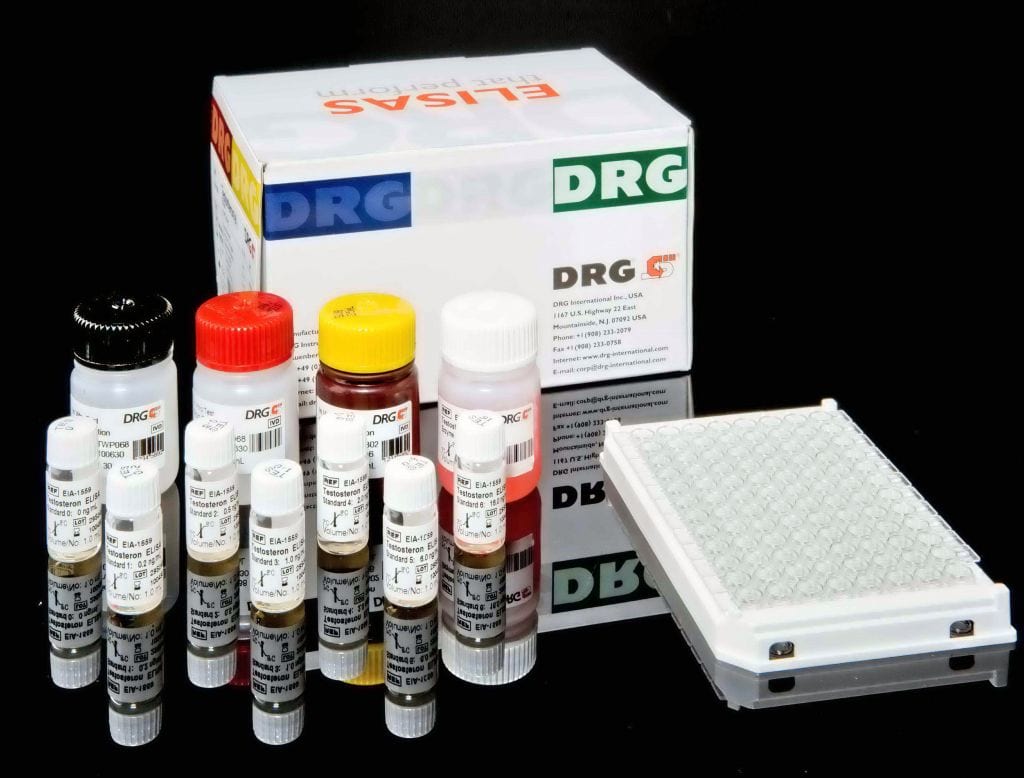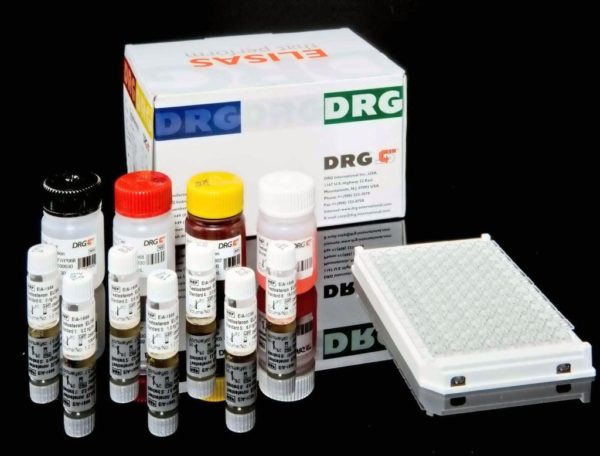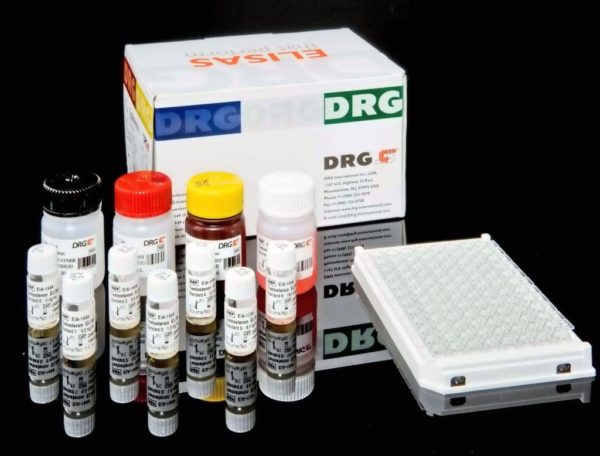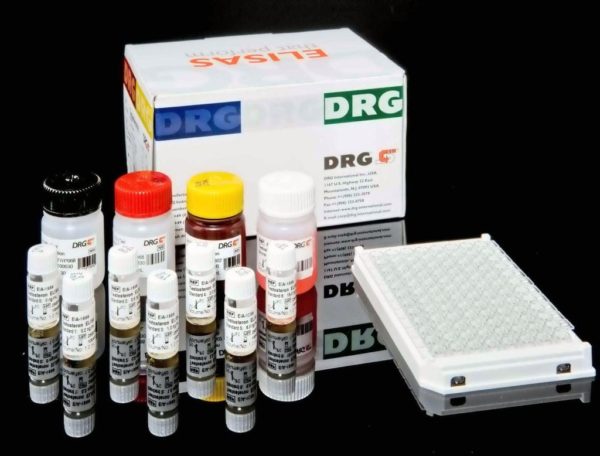Description
The DRG RBP ELISA is intended for the quantitative determination of free Retinol-binding protein (RBP)/RBP4 as well as RBP4 complexed with transthyretin in plasma, serum and urine.For in vitro diagnostic use only.
Retinol-binding protein (RBP)/RBP4 is a small (21 kD) transport protein for vitamin A which forms a complex with pre-albumin in blood but loses its affinity for pre-albumin once the vitamin has been delivered to the target cells. The free RBP/RBP4 molecule is rapidly filtered at the glomerulus and catabolized in the renal tubules after resorption by the proximal tubular cells (like other small molecules, e. g. §-2 microglobulin). In kidney disease with prevailing tubular changes, these proteins are not reabsorbed and appear in the urine.
As published by Yang et al. (2005), the retinol-binding protein (RBP)/RBP4 seems to play a key role in the development of insulin resistance. The fat cell derived peptide RBP/RBP4 also modulates the glucose homeostasis and impairs the insulin sensitivity as well as insulin resistance. The elevation of serum RBP/RBP4 causes systemic insulin resistance, whereas its reduction improves the insulin action. As a conclusion from the results, the authors suggest that RBP/RBP4 alters insulin sensitivity in part by affecting insulin signalling in muscle through alterations in the amount of tyrosine-phosphorylated IRS-1 and PI(3)K activation. Thus, RBP/RBP4 may contribute to the pathogenesis of type 2 diabetes, and lowering RBP/RBP4 could be a new strategy for treating type 2 diabetes.




